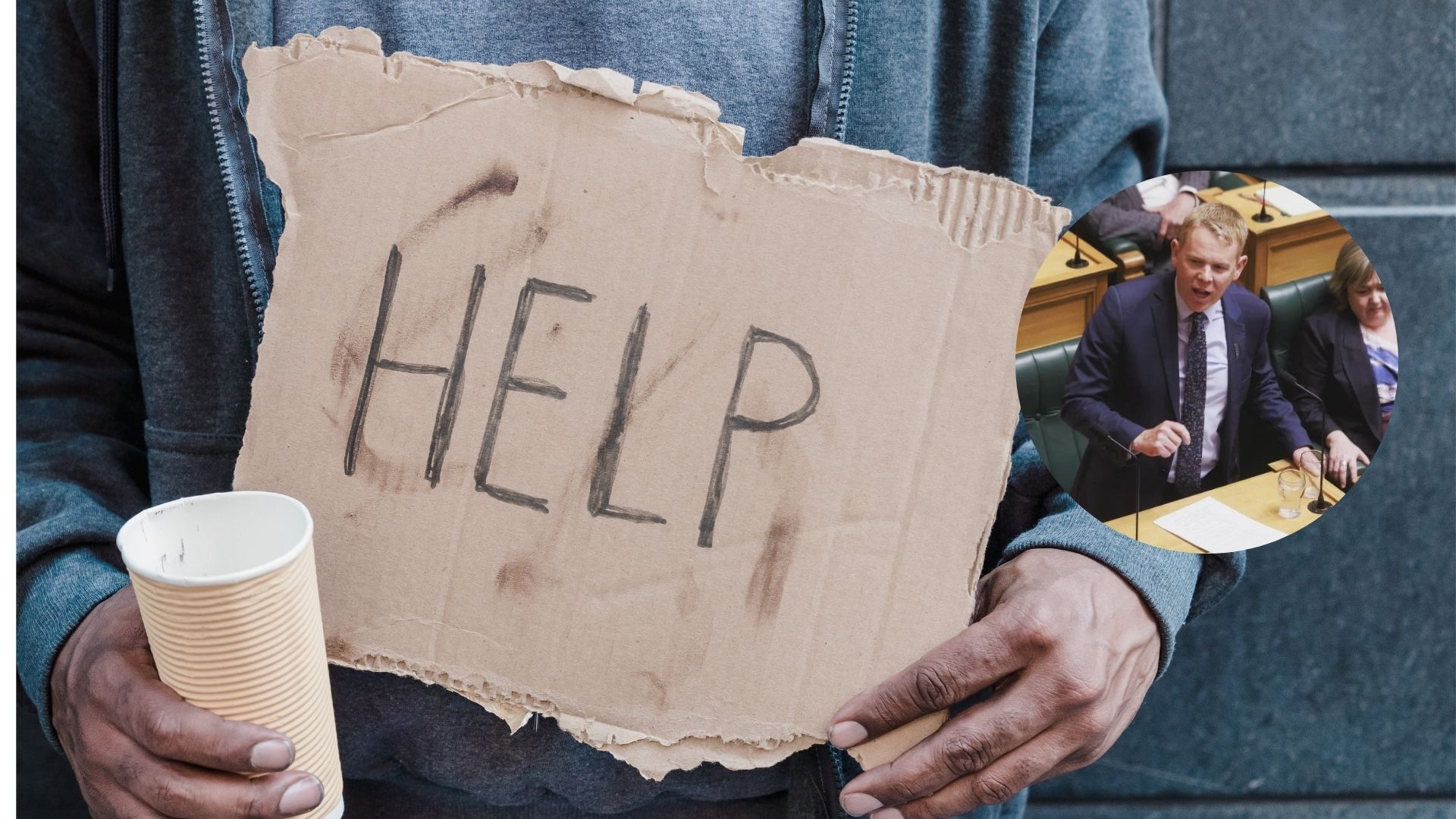Politics
New Legislation Proposed to Ban Begging and Rough Sleeping

New legislation aimed at banning begging and rough sleeping in city centres is being proposed by ministers and members of the National Party in New Zealand. Discussions are ongoing regarding the details of this policy, which would grant law enforcement the authority to move individuals engaged in these activities out of urban areas.
On March 13, 2024, Police Minister Mark Mitchell and Justice Minister Paul Goldsmith confirmed that work is underway to empower police and potentially other law enforcement agencies to “move on” those who are begging or sleeping rough in city centres. Their announcement came after a session in Parliament where Prime Minister Christopher Luxon was questioned by Labour leader Chris Hipkins about potential legal changes regarding homelessness in central business districts.
In response to Hipkins’ inquiries, Luxon stated that “there have been no Cabinet decisions or discussion on that topic.” However, Mitchell’s subsequent remarks indicated that discussions are indeed progressing. He revealed that Goldsmith is collaborating with an advisory group and the Ministry of Justice to draft a bill that would allow law enforcement officers to ask homeless individuals to vacate public spaces.
Concerns and Support for the Proposal
Mitchell expressed his support for the proposed legislation, arguing that the presence of homeless individuals in city centres raises safety and social concerns. He stated, “At the moment, there are no powers to be able to move people on who come in and create social issues and intimidate people. They’re at risk themselves,” as reported by Stuff.
National MP Ryan Hamilton had previously introduced a similar initiative through a private member’s bill, although it is not currently official Government policy. Mitchell praised Hamilton’s bill as “a really good bill” and expressed hope that it would be adopted by the Government.
Prime Minister Luxon defended the proposal as part of a broader strategy to enhance the urban environment, particularly in Auckland’s central business district. He mentioned that “move-on orders would be one of the things you’d want to consider,” while also emphasizing the need for “the right support structures” for those affected by the policy.
Opposition and Historical Context
Opposition leader Hipkins criticized the initiative, characterizing it as a misguided approach to addressing the complex issue of homelessness. He stated, “Making it illegal to be homeless doesn’t make someone not-homeless. Pushing them out of a CBD into a suburban area does not make them not-homeless.”
This is not the first time Goldsmith has advocated for measures related to homelessness. In 2008, while serving on the Auckland Council, he supported actions that would permit the council to prevent individuals from lying or sleeping on city streets. Goldsmith, however, downplayed that previous stance, commenting, “2008? I don’t even remember 2008.” He noted that the current proposal was motivated by concerns expressed by residents, retailers, and business groups.
Goldsmith highlighted that the advisory group working alongside the Ministry of Justice includes representatives from various sectors, such as dairy owners’ lobbyist Sunny Kaushal, Michael Hill Jewellers manager Michael Bell, liquor store operator Ash Parmar, supermarket manager Lindsay Rowles, and Retail NZ chief executive Carolyn Young. Additionally, social service organizations such as the Māori Wardens and Auckland City Mission are also participating in these discussions.
As the proposal has yet to be presented to Cabinet, its confirmation has ignited a significant debate regarding whether homelessness should be treated as a criminal matter or addressed through social policy. The outcome of these discussions may significantly influence the future approach to homelessness in New Zealand’s urban landscapes.
-

 Sports2 months ago
Sports2 months agoNetball New Zealand Stands Down Dame Noeline Taurua for Series
-

 Entertainment2 months ago
Entertainment2 months agoTributes Pour In for Lachlan Rofe, Reality Star, Dead at 47
-

 Entertainment4 weeks ago
Entertainment4 weeks agoNew ‘Maverick’ Chaser Joins Beat the Chasers Season Finale
-

 Sports2 months ago
Sports2 months agoSilver Ferns Legend Laura Langman Criticizes Team’s Attitude
-

 Sports3 days ago
Sports3 days agoEli Katoa Rushed to Hospital After Sideline Incident During Match
-

 Politics1 month ago
Politics1 month agoNetball NZ Calls for Respect Amid Dame Taurua’s Standoff
-

 Entertainment2 months ago
Entertainment2 months agoKhloe Kardashian Embraces Innovative Stem Cell Therapy in Mexico
-

 World3 months ago
World3 months agoPolice Arrest Multiple Individuals During Funeral for Zain Taikato-Fox
-

 Sports3 months ago
Sports3 months agoGaël Monfils Set to Defend ASB Classic Title in January 2026
-

 Entertainment1 month ago
Entertainment1 month agoTyson Fury’s Daughter Venezuela Gets Engaged at Birthday Bash
-

 Sports1 month ago
Sports1 month agoHeather McMahan Steps Down as Ryder Cup Host After Controversy
-

 World2 weeks ago
World2 weeks agoSevere Winds Hit New Zealand, Over 100 Flights Canceled



















